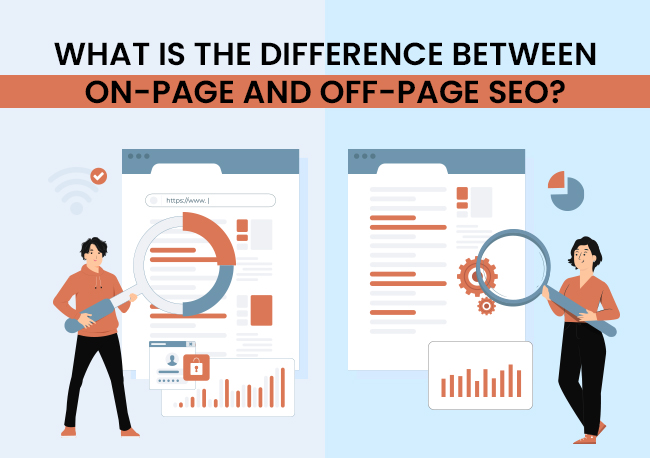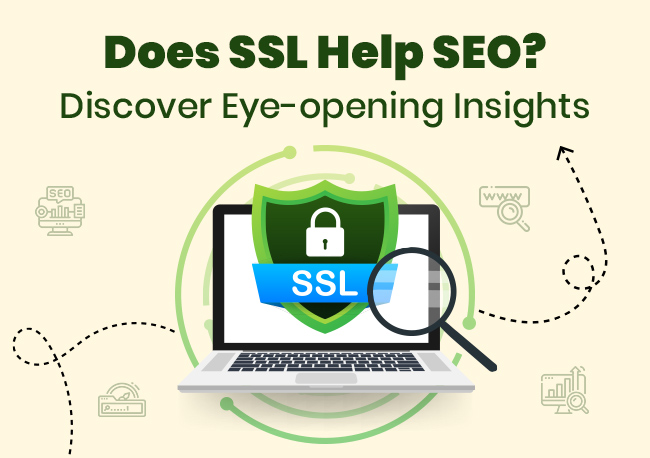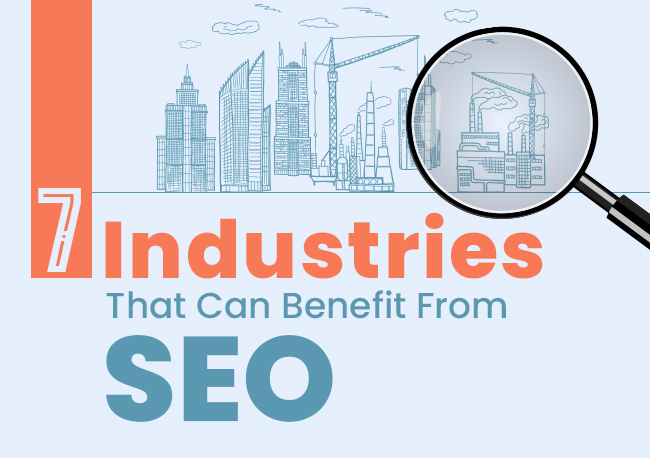| Getting your Trinity Audio player ready... |
Whether you want to increase the number of leads, get more customers, or sell your product or service online, you need to show up your offerings in top SERP results, preferably at the top.
In today’s world, people generally expect to discover anything they require at the forefront of Google search outcomes. Drawing in new clients to your business becomes notably simpler when your website holds a prominent position on the search engine results page (SERP).
Why?
Approximately 80% of all users totally ignore paid advertisements.
More than 75% of online searches never go beyond the first page of results.
According to SmallBizGenius, leads generated by SEO are eight times more likely to convert into paying customers than leads generated by paid ad campaigns.
Developing a great SEO plan is one of the most valuable investments you can make for your website. And, On-page and Off-page SEO are primary ranking factors for any website to get top rank on Google and other search engines.
In this blog, we will explore key differences between On-page and Off-page SEO and learn how these tactics work.
What is SEO & Why is it Important?
SEO is a set of practices and strategies aimed at improving a website’s visibility on search engines like Google, Bing, or Yahoo.
The principal objective of Search Engine Optimization (SEO) is to elevate the organic (non-paid) search engine rankings of a website, thereby increasing the likelihood of its visibility on the initial page of search results in response to user queries.
SEO strategy involves various techniques and optimizations to make a website more professional & attractive to search engines and, consequently, more accessible and relevant to users.
Also Read: How Is Ranking Different When Comparing PPC Vs SEO?
Key SEO Components:
- On-Page SEO: Optimizing elements within a webpage, such as titles, meta descriptions, headings, content, and images, to improve visibility (increase impressions).
- Off-Page SEO: Building backlinks and promoting the website through external channels to establish the authority and credibility of your website.
- Technical SEO: Ensuring that the website’s technical aspects, such as site speed, mobile-friendliness, and crawlability, meet search engine standards.
- User Experience (UX): Creating a positive and seamless experience for visitors, including easy navigation and user-friendly structure.
Also Read: How SEO And SEM Work Together?
Why is SEO Important for Any Website?
➢ Increased Visibility and Traffic: Websites that rank higher in search results are more likely to be seen by users, resulting in increased website traffic.
➢ Credibility and Trust: Users tend to trust websites that appear at the top of search results, considering them more authoritative and relevant to their queries.
➢ Cost-Effectiveness: Compared to paid advertising, organic traffic from SEO is essentially free. While SEO efforts require time and resources, the long-term benefits often outweigh the costs.
➢ Better User Experience: SEO practices, such as optimizing site structure and content, contribute to a better user experience, which is favored by both search engines and visitors.
➢ Competitive Advantage: In competitive industries, a well-optimized website can stand out and attract more attention than competitors who neglect SEO.
Also Read: What Is A Sitemap & Why Do You Need It?
Let’s understand with a simple example:
Imagine a local coffee shop that doesn’t optimize its website. When someone in the area searches for “best coffee near me” or “local coffee shop,” the shop’s website doesn’t appear in the highest-ranked search findings.
As a result, potential customers may not discover the coffee shop online, impacting its visibility and customer acquisition.
Also Read: Which Businesses Benefit From Local SEO Practices?
What is On-Page SEO?
On-page SEO is the art of optimizing individual website pages to rank higher and earn traffic on relevant queries. In simple terms, you’re making your web pages attractive, user-friendly, and information-rich to satisfy both users and search engines.
➢ Why is On-Page SEO important?
On-page SEO is pivotal for web success, ensuring search engines grasp content relevance. It elevates visibility, aligns with user queries, and enhances user experience. Well-optimized pages, with clear structure and keywords, foster trust and credibility, outshining competitors in search results.
Beyond attracting visitors, On-page SEO aims to convert with elements like effective calls-to-action.
➢ What are the Key Elements of On-page SEO?
★ Title Tags: Think of these as the headlines for your pages. They tell both users and search engines what a page is about.

★ Meta Descriptions: Like a sneak peek or summary of what users can expect on your page in just 160 characters. This brief description is displayed in search results below the title tag.

★ Header Tags: These are like section titles in a book. They break down your content into easy-to-read sections and give search engines a better understanding of your content’s structure.

★ URL Structure: A clean and descriptive URL helps users and search engines understand the page’s topic.

★ Keyword Optimization: Just like the Cafe needs to mention it sells Coffee, your content needs relevant & right number of keywords on the website for SEO so that search engines know when to show your page in search results
★ Content Quality & Relevance: It is important to develop Your website content with a goal of being high quality and that meet the needs of your audience, answering all the queries related to that topic.
★ Internal Linking: Think of this as creating a map inside your website, guiding customers from one page to another. It helps users and search engines navigate your website.
★ Media Optimization: Big-size images and videos can slow down a website. Optimizing them ensures your coffee pictures load quickly and still look superb.
★ User Experience: If your coffee shop is a mess, customers won’t enjoy their visit and spend time there. In the same way, A well-designed, easy-to-navigate website keeps users happy and engaged throughout the journey.
★ Schema Markup: You can use schema markup to provide additional context to search engines about the content on the page.

Also Read: Top Industries That Can Benefit From SEO In 2024
What is Off-Page SEO & Its Importance?
Off-page SEO refers to optimization efforts and methods that take place outside of a website, on external platforms and websites, in order to increase its visibility and authority. Off-page SEO’s major purpose is to increase a website’s credibility, trustworthiness, and relevancy in the eyes of search engines and users.
➢ What are the Key Elements of Off-Page SEO?
1. Backlink Building: Consider backlinks to be recommendations. If numerous other cafes and food critics praise your coffee, it demonstrates that your cafe is noteworthy. Similarly, backlinks from other websites indicate to search engines that your content is worthwhile. Here are the most popular backlink-building strategies:
- Broken Link Building
- Local Citation
- Convert Brand Mention
- Strong Internal Linking
- Social Media Engagement
- Social Bookmarking Sites
- Forum Submission
- Blog Directory Submission
- Article Submission
- Question and Answer
- Infographics Submission
- Document Sharing
- Video Submission
- Image Submission
- Press Release
- Web2.0 Submission
- Use Google My Business
2. Influencer Marketing: Imagine a well-known food blogger visiting your cafe and declaring, “Cold Coffee is a must try.” Their recommendation could result in a rush of new customers. Similarly, industry influencers can help your website by mentioning and linking to it.

3. Brand Mentions: Even if there isn’t a direct link, if people are talking about your cafe (brand name mention), it contributes to your online reputation. Similarly, if reputable websites mention your brand with a link, it adds credibility in the eyes of search engines.
Also Read: Can I Blog To Improve The SEO Of Website?
4. Grow Your Social Media: An active and engaged social media presence can create buzz around. Social signals, like shares and likes, can indirectly impact search engine rankings.

5. Online Reviews & Testimonials: If your customers leave positive feedback online about your coffee and other drinks, it’s like positive word-of-mouth. Similarly, positive online reviews and testimonials contribute to your website’s credibility.
Also Read: 15 Best SEO Audit Tools For Your Website (Free+Paid)
Differentiating Factors Between On-page and Off-page SEO
1. Location
On-Page optimization is concerned with optimizing components directly on your page, such as content, meta tags, and images. Off-page refers to activities that take place outside of the website, such as backlink building and online reputation management.
2. Control
You have complete control over on-page items and can modify your website. Off-page factors are more difficult to influence because they involve external entities mentioning or linking to your website.
3. Purpose
On-page optimization is primarily concerned with making your website more user-friendly, relevant, and intelligible to search engines. Off-page seeks to increase your website’s credibility, authority, and trust by obtaining mentions, links, and favorable evaluations from external sources.
4. Examples
On-page SEO includes title tags, meta descriptions, URL structure, keyword optimization, and writing quality content. Off-page SEO includes backlink building, influencer marketing, brand mentions, social media presence, and online reviews.
5. Immediate Impact vs. Long-Term Results
On-page SEO can have an instant impact on how search engines view and rank your pages. While developing a positive Off-page reputation takes time, the impact on search rankings may be noticeable in the long run.
Also Read: What Is The Importance Of SEO For eCommerce Website
Teamwork Between On-page and Off-page SEO
On-page and Off-page SEO are two sides of the same coin. They work together to establish a comprehensive strategy for increasing a website’s visibility, credibility, and rankings in search engine results. Let’s look at how they complement each other:
➔ On-page and off-page SEO work together to create a comprehensive strategy. A well-optimized website (On-page) provides a solid foundation for off-page efforts.
➔ A high-quality On-page content strategy attracts more attention from external sources, contributing to Off-page efforts.
➔ On-page elements contribute to the credibility of your content, and off-page activities enhance the overall credibility of your website.
➔ A positive user experience (On-page) can lead to more social shares and recommendations (Off-page).
➔ Quality content on your site can attract natural backlinks (Off-page), while actively pursuing backlinks also enhances On-page content visibility.
➔ On-page elements like brand consistency and messaging align with off-page efforts in influencer marketing and brand mentions, contributing to a strong overall brand image.
Conclusion
In digital marketing, both On-Page and Off-Page SEO converge to shape a website’s triumph.
On-Page SEO crafts a user-friendly storefront, optimizing titles, meta descriptions, and website content.
Meanwhile,
Off-Page SEO extends beyond its website, building the website’s reputation through backlinks, influencer endorsements, social media acclaim, and other tactics.
The magic lies in the seamless collaboration of On-page and Off-page strategies, forming a powerful alliance that elevates a website’s visibility and credibility, and overall increases the digital value of your website.
FAQs
The most effective SEO strategy is a synergistic combination of on-page and off-page methods. Off-page SEO increases credibility through backlinks and social validation, while on-page SEO optimizes content and user experience. Both are essential for increasing a website’s visibility, relevancy, and authority.
SEO tools such as Yoast SEO, Google Analytics, and Webmaster are used for on-page SEO tactics such as optimizing meta tags, content, and other SEO practices.
Off-page SEO frequently involves tools such as Ahrefs, SEMRush, and others for backlink analysis and developing plans for influencer marketing, brand mentions, and social media involvement.
Common mistakes in on-page SEO include neglecting content quality and overlooking meta-tag optimization. In off-page SEO, common errors involve a lack of backlink diversity and disregarding influencer marketing.
Failing to engage in both on-page and off-page strategies actively hinders the overall effectiveness of an SEO campaign.
Yes, On-page and Off-page SEO rules evolve regularly. To stay updated, follow reputable SEO blogs, participate in webinars, and monitor Google’s official updates. Proactively learning about industry changes ensures you adapt strategies to meet the latest SEO standards for sustained online visibility and success.




